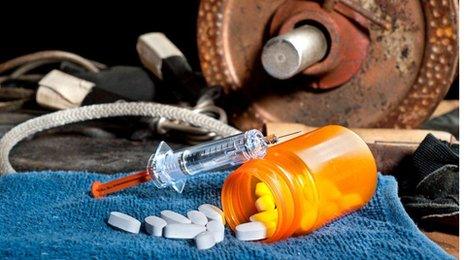Why is steroid use rising among male bodybuilders?
- Published
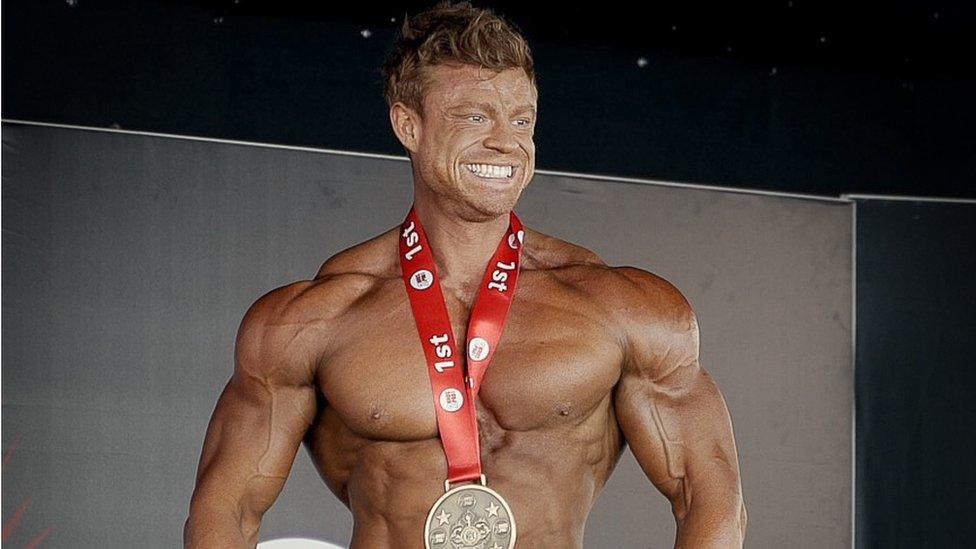
Josh Bridgman has been using steroids for about three years
The risks associated with taking anabolic steroids are extensive and well-documented, ranging from infertility and erectile dysfunction to addiction and baldness, according to the NHS, external website.
But despite these stark warnings, there are still more than one million, predominantly male, steroid users in the UK, according to the UK Anti-Doping agency, external (UKAD).
Academic Josh Torrance has spent years researching the UK's illegal drugs market and said that during his time working directly with users he had noticed "a lot of young lads who had been told by their mates they should start using".
The University of Bristol PhD student said that male body dysmorphia and steroid use were being fuelled by reality TV and social media.
Mr Torrance said that as a society, "we need to be seriously addressing [body dysmorphia] if we have a hope of persuading young men not to start taking steroids in the first place".
None of this has dissuaded professional bodybuilder Josh Bridgman from taking the drugs.
The 28-year-old, from Stroud in Gloucestershire, began taking image and performance-enhancing drugs (IPEDs) in about 2019 and said he regarded their side-effects as a "sacrifice" he was willing to make to achieve the physique he wanted.
Mr Bridgman - who now lives in London - told the BBC: "Ask any Olympic athlete and they will all tell you that you have to make sacrifices.
"This is no different. It's one of the sacrifices that you are willing to take."
As with anorexia, celebrity culture and social media feeds have a lot to answer for here: they are subconsciously making millions of young men in the UK feel inadequate.
Mr Bridgman said that he researched which drugs to take, followed a strict diet and trained religiously.
While he adheres to a strict regime, many other users do not - something which puts them at an even greater risk, Mr Torrance said.
Many of the people he spoke to for his research were not "cycling" either, a process whereby users stop taking the drugs for a prolonged period in order to allow their body to recover.
That could be down to a "vague" understanding of how to take them, and drug addiction and dependency were also known to be factors, he said.
"They would often not really be doing all the things bodybuilders should be: eating six healthy meals a day, spending hours in the gym.
"They were pretty much looking for a quick fix to get buff, which I'm afraid doesn't really exist.
"Steroids or no steroids, putting on muscle mass takes a lot of hard work."
'Feel inadequate'
He added: "As with anorexia, celebrity culture and social media feeds have a lot to answer for here: they are subconsciously making millions of young men in the UK feel inadequate.
"It was a phenomenon that exploded out of nowhere, leaving drug workers scrambling to try and understand a huge range of new drugs that were being taken by an entirely new group of people for an entirely new range of reasons."
Medical professionals including the UKAD have repeatedly warned the benefits do not outweigh the risks.
In a 2020 report, Emily Robinson, UKAD's director of strategy and education, said steroid abuse was "now a serious public health issue".
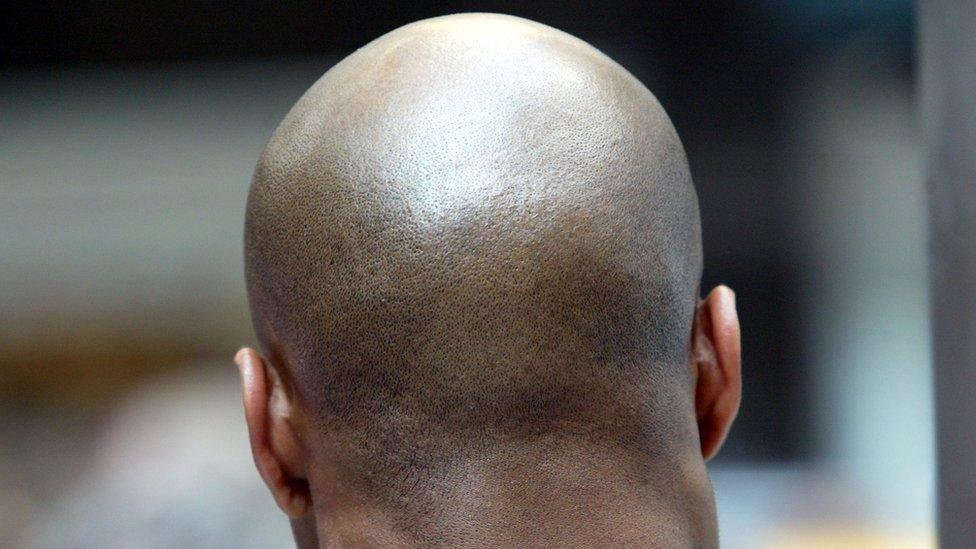
Steroid use can cause baldness
She said: "Social media and TV are more and more dominated by unrealistic body types, which we know leads to young people trying to emulate these.
"Young men, in particular aged 20-24, are being lured into a false reality and begin to rationalise their choices, by convincing themselves that their new and so-called improved look outweighs the risks."

Risks of steroid use
UKAD has listed, external numerous physical and psychological risks associated with taking steroids. They include:
Gynaecomastia (man-boobs)
Genitourinary (shrinking of testicles)
Erectile dysfunction
Infertility
Heart attacks
Strokes
Blood-borne virus risk (e.g. HIV, hepatitis B, hepatitis C) as a result of injecting
Addiction
Depression
Aggression and violence (commonly called 'roid rage')

Mr Bridgman belongs to a section of the bodybuilding community that openly talks about steroids - synthetic drugs that help the body to produce muscle.
They are legal to possess and use however, it is illegal to possess, import or export anabolic steroids if it is believed you are supplying or selling them.
At this point they are treated as a Class C drug meaning those found guilty face up to 14 years in prison, plus an unlimited fine.
Posting or having steroids delivered by a courier is also illegal.
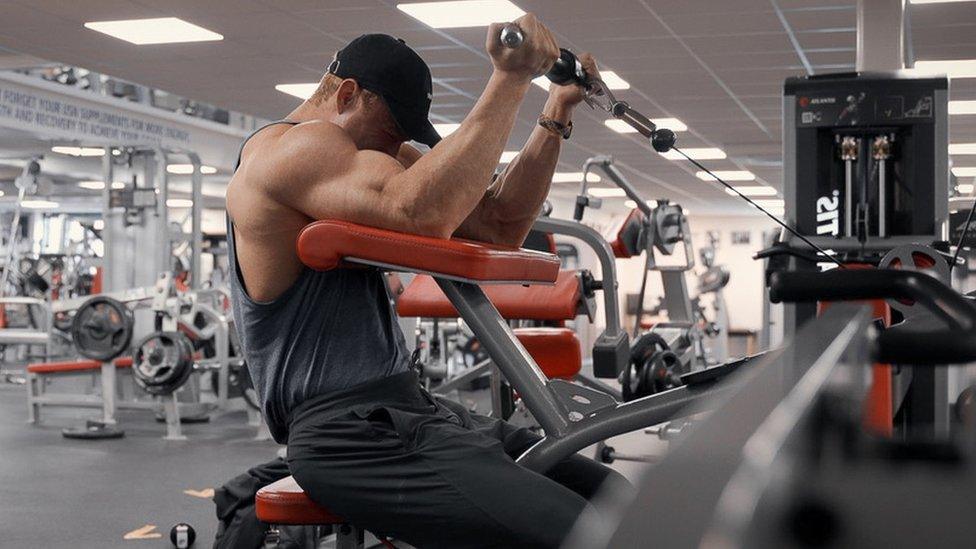
The professional bodybuilder says that more than 90% of their peers were also taking the substances
Mr Bridgman began weight training 10 years ago and claimed that more than 90% of his peers were taking steroids.
He said the "odd one or two" were able to achieve the same results naturally but they were "very rare".
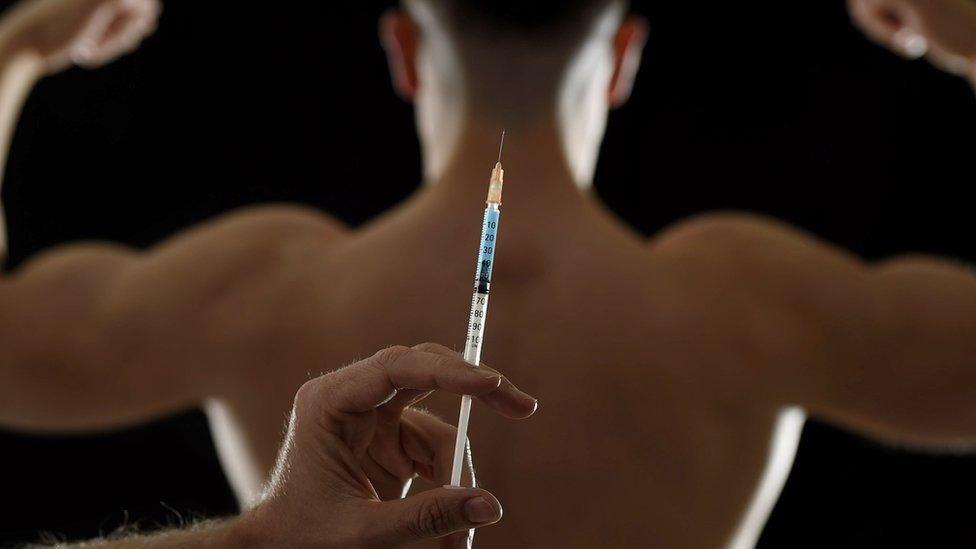
There are estimated to be one million steroid users in the UK
An online questionnaire of more than 500 male gym users by healthcare firm Medichecks has revealed that 75% of respondents had considered steroid use.
Its finding - released this month - found that 96% of those polled were unhappy with their bodies and 61% wanted to be bigger.
Dr Daniel Grant, Medicheck's head of medical education, blamed a rise in this type of body dysmorphia - often called "bigorexia" - on the influence of reality TV and social media, partly.

Dr Daniel Grant blamed the rising problem partially on reality TV
He said with an estimated one million steroid users in the UK, according to a 2020 research paper by the UKAD, external, the subject was a "pressing issue".
"The mental health of our male population is a growing concern, and this research offers valuable insight into fears around body image and exercise, which will be inevitably fuelling anxiety," he said.
"Education is important here, changing mindsets to be accepting of different body types and a healthier attitude to body image.
"But it's clear that reality TV has a significant part to play."

Follow BBC West on Facebook, external, Twitter, external and Instagram, external. Send your story ideas to: bristol@bbc.co.uk , external
- Published22 March 2021
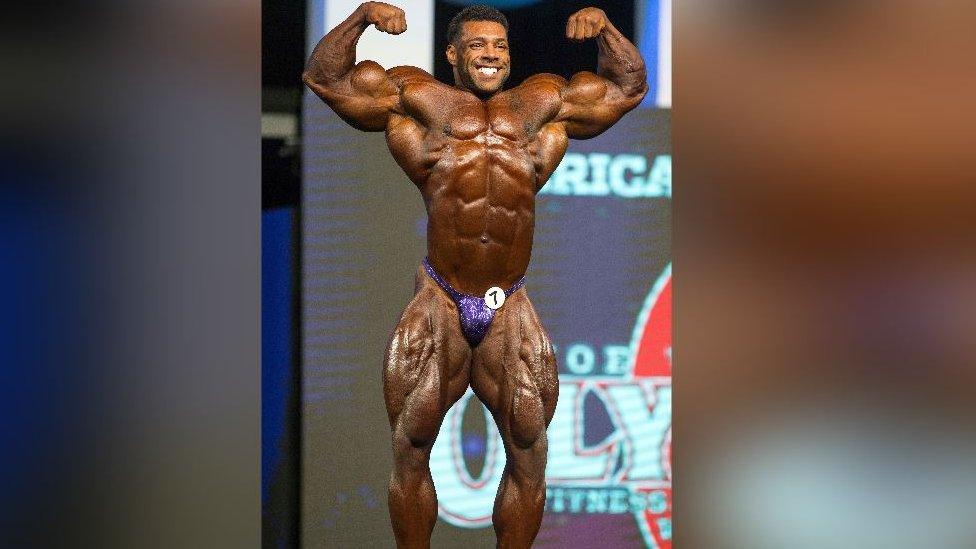
- Published13 November 2021

- Published30 January 2015
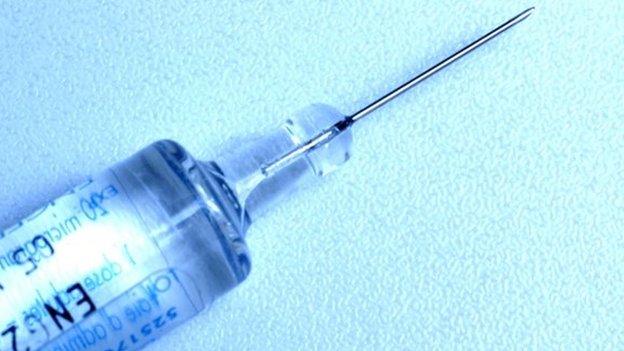
- Published23 January 2013
